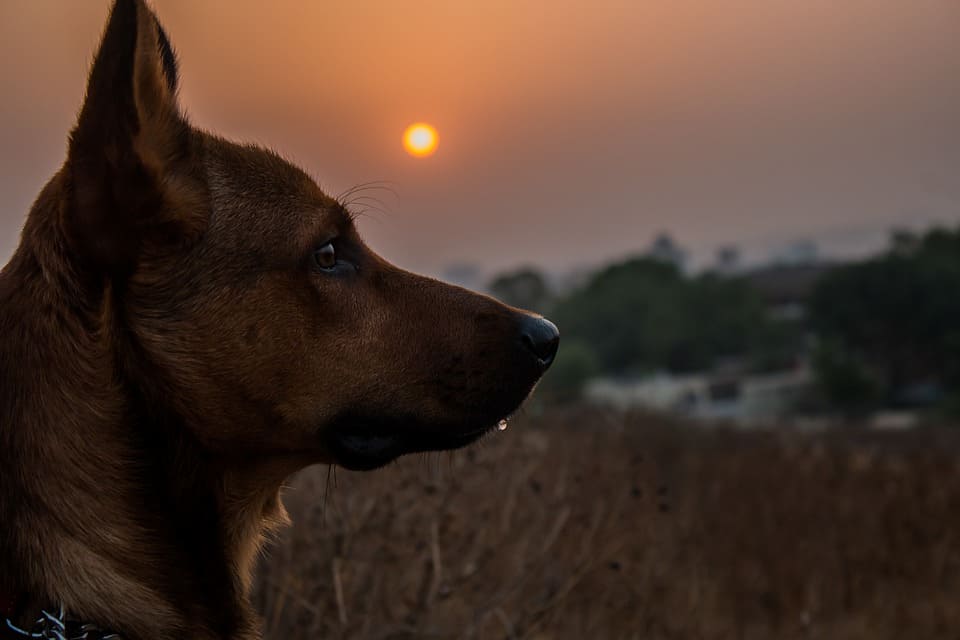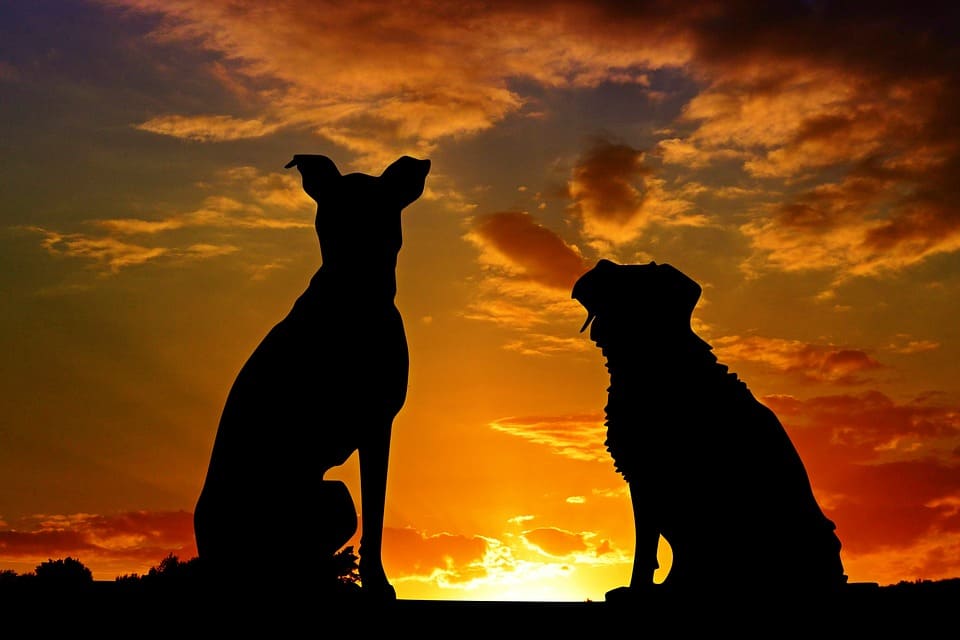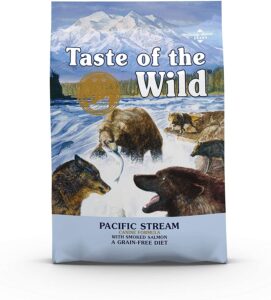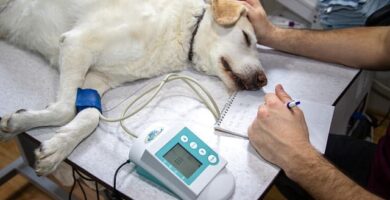Almost all dog owners ask ourselves the same question at some point, what does my dog see? At first glance, this question seems simple, but it turns out that dogs have a rather complex vision, which differs from that of humans.
Understanding these differences can help us better understand why our canine companions do (sometimes or again) strange things.

The Fundamentals of Vision
In mammals, there are two basic structures in the retina that make vision possible and these are called rods and cones, and each is responsible for a different aspect of vision.
Rods are responsible for low-light vision and are very sensitive to light, while cones are responsible for color vision and need more light to function effectively.
Both humans and dogs have canes and cones in their eyes, however, their number varies and in dogs one type of cone is completely absent.
How is vision assessed in dogs?

Studying vision in animals is a unique challenge, they can’t tell us anything directly and we can’t see through their eyes.
However, over the years several ingenious experiments have been developed that can overcome the language barrier between dogs and humans.
Specifically, these experiments have focused on answering four key questions about dogs’ vision.
- What colors do dogs see?
- Are dogs myopic?
- What do dogs see at night?
- How do dogs see people’s faces?
To answer these questions, the researchers had the dogs perform various tasks; in one experiment, for example, a dog had to look at three blocks of color on a touch screen. Two of them were the same color, but the third was different. The dogs were taught to touch the different colors and given a treat.

What are the results of your research?
Thanks to the efforts of scientists, we can now say with a high degree of certainty what dogs see and how they see it. Of course, there is always the possibility that new research will change our perceptions, not so long ago, it was thought that dogs could only see in black and white.
How dogs see color

The reason the black-and-white myth is so ingrained is that dogs actually see fewer colors than humans. That’s because they have fewer color-sensing cones in their eyes: two instead of three.
In spite of everything, there are still many colors that can only be perceived by two cones.
The dog’s vision is similar to that of people with red-green color blindness, who cannot distinguish between red and green.
The researchers found that when they displayed two red and two green boxes on the touchscreen, the dogs correctly selected the green one third of the time.
In other words, it seems like a random assumption. However, when the colors blue and yellow were used, most dogs gave the correct answer.
There are many theories about why some animals can see red and green and others cannot, in the case of dogs, it is usually thought that it is related to the behavior of their ancestors, when hunting at night, seeing in full color is not so important.
How dogs see the details

In an experiment to study myopia in dogs, participating dogs were asked to look at two models side by side.
One had black and white vertical stripes, and the other was uniformly gray, dogs that recognized the stripes received treats as a reward. As the process progressed, the width of the stripes became less and less, over time, the stripes became blurred, and the dogs could only see two uniform gray stripes.
The researchers measured the width of the stripes disappearing from the dog and made it the traditional 20/20 acuity scale.
The dog’s final visual acuity score was approximately 20/75. In other words, the dog could see 5 meters ahead of what a normal person could see 30 meters, in other words, dogs are extremely myopic.
This again explains the evolution of night hunting.
How dogs see at night
Dogs have more rods in their eyes than humans, allowing them to see in much dimmer light than humans.

Dogs also have larger pupils than humans. The pupil opens automatically to control the amount of light, when it gets dark, the human pupils dilate to the maximum to capture the light.
The pupils of dogs do the same even so, their maximum dilation is much greater.
In this way, dogs are able to detect movement in low light. Sacrificing colors and detail, they can only see their prey vividly in the light of the waning moon.
It’s an effective compromise that allowed their wolf ancestors to survive better in the wild.
How dogs see human faces
Aside from the interesting stories about the biology of dogs and the workings of their eyes, there’s another fascination humans have for their dogs. How do they recognize people? Concretely, how do they see people’s faces?
In general, dogs are very good at remembering human faces, they can even read emotions from facial expressions. Surely more than once you have played with your dog looking sad or happy, to see his reaction.
This includes only faces, with no identifying information such as smells or sounds.
They seem to recognize the configuration of the eyes, nose and mouth together, whereas when the face is divided into separate elements, dogs recognize pairs of eyes better. This makes sense, considering that some dogs can determine direction based solely on where a person looks.
Maintaining healthy vision in dogs
Dogs have an excellent sense of smell and hearing, but obviously their eyes are also essential for a normal life. It is important to feed your dog a nutritious diet to maintain healthy vision.
If you’re looking for a safe treat, think about carrots. In addition to the human eye, carrots can also help your dog’s eyes. They are rich in beta-carotene, provitamin A, vitamins B, C, D, E and K, and many other trace elements.
Other nutrients important for vision are omega-3 fatty acids, such as eicosapentaenoic acid (EPA) and docosahexaenoic acid (DHA). Foods containing fish are a great way to ensure your dog’s food is rich in EPA and DHA.

Do you help us share?

What is the best dog food for dogs with digestive problems?

Why do dogs mark territory?

Pancreatitis in dogs

How to remove dog piss odor

Furbo Dog Camera

How to keep your dog from barking at delivery drivers
- Why do dogs bury bones? - January 2, 2023
- How long is a dog’s pregnancy? - December 24, 2022
- Why do dogs mark territory? - October 24, 2022
